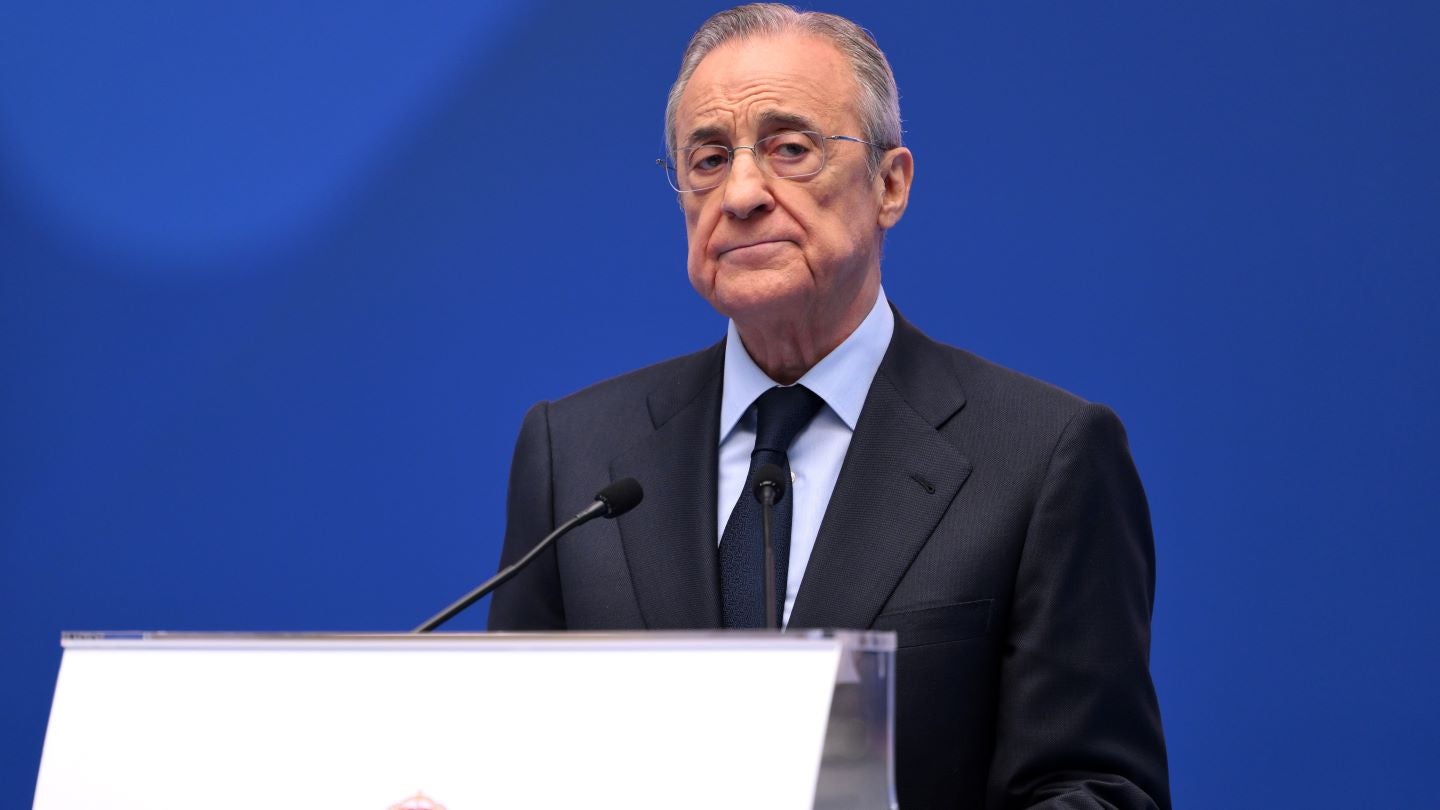
Spanish giants Real Madrid are seeking “substantial damages” from UEFA after European soccer’s governing body lost a court appeal over the failed European Super League (ESL) project.
A ruling from the Provincial Court of Madrid on Wednesday upheld a decision from May 2024, which found UEFA, the Spanish football federation (RFEF), and the top-flight LaLiga were practising anti-competitive behaviour and abusing their dominant position by banning clubs from joining the controversial breakaway league.

Discover B2B Marketing That Performs
Combine business intelligence and editorial excellence to reach engaged professionals across 36 leading media platforms.
In response to the court’s decision, UEFA stated that the latest judgement does “not validate” the Super League project, “nor does it undermine UEFA’s current authorisation rules.”
In a separate judgment in December 2023, the European Court of Justice also ruled that international governing body FIFA and UEFA acted unlawfully by blocking clubs from joining the ESL in its first incarnation, which led to UEFA updating its rules.
Real Madrid were one of 12 European clubs to back the breakaway competition in 2021 before it was scrapped following fan backlash and government pressure.
However, the Spanish outfit has always continued to advocate for the ESL and is now seeking financial compensation from UEFA.

US Tariffs are shifting - will you react or anticipate?
Don’t let policy changes catch you off guard. Stay proactive with real-time data and expert analysis.
By GlobalDataIn a statement, the club said: “Real Madrid welcomes the decision by the regional court of Madrid to dismiss the appeals lodged by UEFA, the RFEF and La Liga, confirming that UEFA, in the matter of the Super League, seriously infringed European Union competition rules in line with the CJEU ruling, abusing its dominant position.
“This ruling paves the way for the club to claim substantial damages from UEFA.”
UEFA quickly followed up with a statement of its own, saying: “These rules ensure that any cross-border competitions are assessed on objective, transparent, non-discriminatory and proportionate criteria.
“This development comes after the European Parliament this month adopted a landmark resolution explicitly reiterating its opposition to 'breakaway competitions' as they 'endanger the overall sport ecosystem'.
“UEFA will carefully review the judgment before deciding on any further steps, and will not be commenting further at this stage.”
The continental body added that it will continue to “safeguard the unity of European football” and it is “firmly committed to the European sports model, built on sporting merit, open access, solidarity and the protection of the football pyramid.”
LaLiga also responded to the ruling from the Madrid court, saying it respected the decision, but reiterated its “firm commitment” to the “integrity and stability of national competitions” and “respect for the European Union's competition rules.”
The league’s president, Javier Tebas, who has long been a critic of the ESL, said: “This ruling does not in any way represent an endorsement of the Super League or any other format. It merely reiterates that regulations must be applied with transparency and objectivity.
“We will continue to defend the European model based on sporting merit, solidarity, and the sustainability of national competitions. Any proposal that respects these principles will be considered; what we will not do is give blank checks to projects that put the balance of football at risk.”
Alongside Real Madrid, the ESL had been originally proposed by fellow Spanish sides Barcelona and Atletico Madrid; Tottenham Hotspur, Arsenal, Chelsea, Manchester City, Manchester United, and Liverpool from England; and Juventus, Inter Milan, and AC Milan from Italy.
However, the concept was widely rejected by a vast majority of European soccer’s range of stakeholders, with one of the main bones of contention being the proposed closed-shop format, without promotion or relegation.
The widespread condemnation led to the collapse of the plans within 72 hours, with nine of the clubs pulling out.
Real Madrid, Barcelona, and Juventus were the only clubs to remain committed to the project and took legal action against the sport’s leading bodies. Juventus, however, eventually withdrew from plans to form the ESL last year.
Last December, A22 Sports Management, the firm in charge of reanimating the ESL, proposed an alternative club competition to the controversial project, claiming that it had “initiated the process” for the official recognition of its newly rebranded Unify League by FIFA and UEFA.
Naturally, the revamped proposal immediately drew widespread criticism. Tebas, in particular, has long been a critic of A22 and its various attempts to challenge FIFA and UEFA’s dominance, previously calling the company “deceitful”.
A22 stated that 96 clubs would compete in the Unify League, with all potential matches to accommodate the domestic leagues and be shown on a free-to-air streaming platform.





